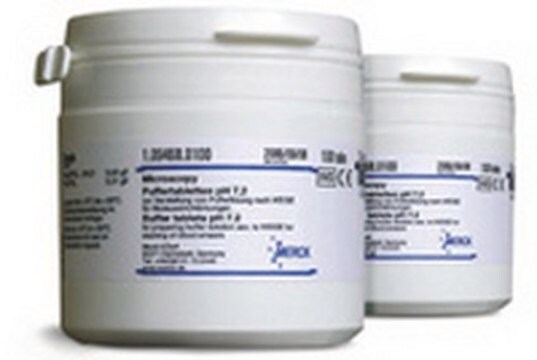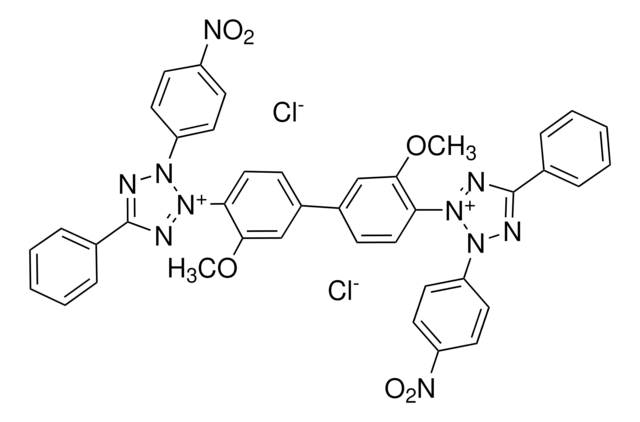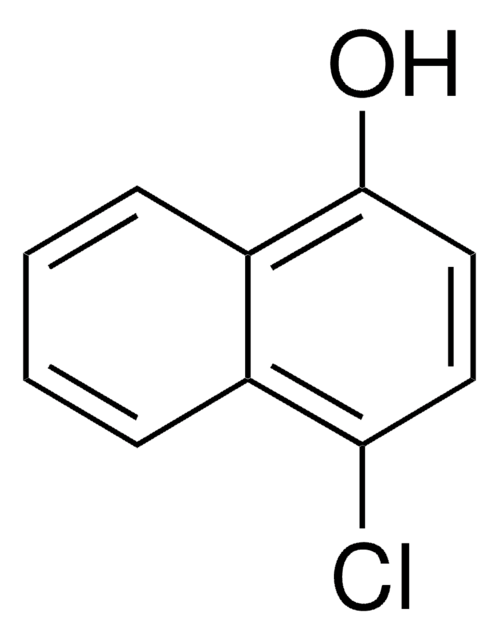D9015
3,3′-Diaminobencidina tetrahydrochloride hydrate
≥96% purity (TLC), powder
About This Item
Productos recomendados
product name
3,3′-Diaminobencidina tetrahydrochloride hydrate, ISOPAC®
Nivel de calidad
Análisis
≥96% (TLC)
formulario
powder
color
off-white to faint red, to beige
mp
280 °C
solubilidad
water: 50 mg/mL, clear to slightly hazy
aplicaciones
diagnostic assay manufacturing
hematology
histology
temp. de almacenamiento
room temp
cadena SMILES
O.Cl.Cl.Cl.Cl.Nc1ccc(cc1N)-c2ccc(N)c(N)c2
InChI
1S/C12H14N4.4ClH.H2O/c13-9-3-1-7(5-11(9)15)8-2-4-10(14)12(16)6-8;;;;;/h1-6H,13-16H2;4*1H;1H2
Clave InChI
DXWSCXIZIHILNP-UHFFFAOYSA-N
¿Está buscando productos similares? Visita Guía de comparación de productos
Aplicación
Acciones bioquímicas o fisiológicas
Envase
Precaución
Reconstitución
Información legal
ISOPAC de
Palabra de señalización
Danger
Frases de peligro
Consejos de prudencia
Clasificaciones de peligro
Acute Tox. 4 Oral - Carc. 1B - Eye Irrit. 2 - Muta. 2
Código de clase de almacenamiento
6.1C - Combustible acute toxic Cat.3 / toxic compounds or compounds which causing chronic effects
Clase de riesgo para el agua (WGK)
WGK 3
Punto de inflamabilidad (°F)
Not applicable
Punto de inflamabilidad (°C)
Not applicable
Equipo de protección personal
Eyeshields, Gloves, type N95 (US)
Elija entre una de las versiones más recientes:
¿Ya tiene este producto?
Encuentre la documentación para los productos que ha comprado recientemente en la Biblioteca de documentos.
Los clientes también vieron
Artículos
Nitroblue Tetrazolium (NBT) is used with the alkaline phosphatase substrate 5-Bromo- 4-Chloro-3-Indolyl Phosphate (BCIP) in western blotting and immunohistological staining procedures. These substrate systems produce an insoluble NBT diformazan end product that is blue to purple in color and can be observed visually.
Nuestro equipo de científicos tiene experiencia en todas las áreas de investigación: Ciencias de la vida, Ciencia de los materiales, Síntesis química, Cromatografía, Analítica y muchas otras.
Póngase en contacto con el Servicio técnico










